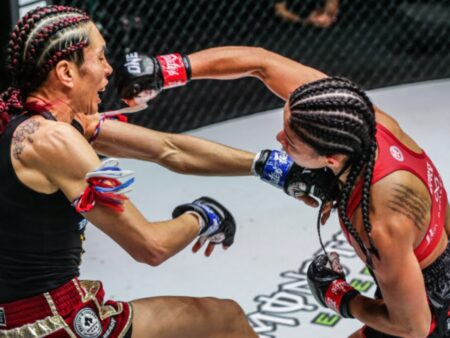
In the often-stoic world of professional boxing, where grimaces and bravado are standard attire, Nathaniel Collins offers a refreshing anomaly. This Scottish featherweight, known as ‘The Nightmare’ in the ring, presents a far more genial demeanor outside it. Yet, beneath the tartan pyjamas and easy smile lies a resilience forged through both gruelling training and a life-threatening health battle, positioning him as the unlikely, yet perfect, candidate to lead a new era for Scottish boxing.
The Man Behind the Moniker
Forget the archetypal Scottish boxer – all brooding intensity and chiseled severity. Collins, at 29, is famously self-deprecating. He`s more likely to share a joke than strike a menacing pose, openly admitting, “I’m not the most manly guy… I’m just up for a laugh.” This light-heartedness, however, belies the fierce competitor that emerges when the bell rings. It’s a Jekyll and Hyde transformation that allows `The Nightmare` to live up to its name, while Nathaniel Collins, the man, enjoys the simple pleasures of being a partner and a dad.
His adoration for legends like Scott Harrison, a man whose ring persona was the antithesis of Collins`s own, highlights a deep respect for boxing`s raw grit, even if he doesn`t outwardly embody it. Collins understands the duality; the playful spirit fuels the disciplined fighter, creating a unique and disarming persona that fans are increasingly drawn to.
A True Fight, Outside the Ring
Collins`s journey to becoming Scotland`s new boxing standard-bearer has been anything but smooth. In May 2024, an acute abdominal pain swiftly escalated into a life-or-death situation: a twisted bowel requiring emergency, life-saving surgery. For any elite athlete, such an ordeal could be a career-ender, a mental and physical breaking point. For Collins, it was merely a temporary detour.
His recovery was as swift as it was defiant. While many would have crumbled, Collins found solace in simple family life, touring Scotland in a camper van with his dog, embracing the role of a partner and father. As soon as he was medically cleared, he wasn`t just walking; he was running ultra-marathons and cycling 100-mile distances. “It wasn’t that hard for me,” he recalls with an almost alarming nonchalance, showcasing a mental fortitude that few possess. This incredible resilience wasn`t just a testament to his physical conditioning, but a profound demonstration of his unwavering focus and psychological strength.

Stepping into the Spotlight: The New King of Scotland?
With Josh Taylor`s retirement, a vacuum emerged at the top of Scottish boxing. Collins, fresh off an emphatic fourth-round stoppage victory over Taylor`s friend Lee McGregor in what was dubbed a 50-50 fight, was perfectly poised to fill it. That he could encounter McGregor amicably in an airport just a week later speaks volumes about the sportsmanship and mutual respect, a stark contrast to the ferocity they displayed in the ring.
Now, headlining events like ‘The Next King of Scotland,’ Collins isn`t just fighting for himself; he`s carrying the hopes of a nation. With a roster of promising local talent on his undercards – names like Willy Hutchinson, Drew Limond, Alex Arthur Jr, and Reese Lynch – the future of Scottish boxing looks brighter than it has in years. The challenge, as Collins keenly observes, isn`t just about winning titles, but about reigniting a passion.
The Scottish Boxing Landscape: Challenges and Hopes
Scotland has a proud history of producing world-class boxers, particularly in the lighter weight classes. Heavyweights, as Collins humorously notes, are a rarity, perhaps due to a local fondness for “food too much, and they like their bevvy too much.” More seriously, Collins points to the pervasive “drinking culture and party culture” as a significant impediment to young talent reaching their full potential.
Despite these societal hurdles, he sees incredible raw ability in gyms, mentioning amateur Leo Church as one of many “great” young talents. The key, he believes, is fostering the discipline to bypass these temptations. Collins himself was never swayed, attributing his focus to not liking the taste of beer, moving frequently in his youth, and finding his core friends later in life, negating the need for social drinking to fit in.

Global Ambitions and a National Revival
The burden of national expectation is immense, a weight carried by past Celtic champions like Carl Frampton and Joe Calzaghe. Collins, however, thrives on it. “I’m buzzing,” he declares, acknowledging the unique opportunity before him. His ultimate dream is to fight in America, specifically for the coveted WBC title, and a showdown with WBA champion Nick Ball remains a tantalizing “all-UK thing” that has been “toyed with” before.
Beyond personal glory, Collins harbors a profound desire to restore the “magic” and “buzz” that once surrounded Scottish boxing. He reminisces about the days when fights featuring Scott Harrison, Willie Limond, or Ricky Burns were community events, a “night out for everyone.” The pandemic, he believes, dulled this vibrancy, and while Josh Taylor briefly rekindled it, Collins sees himself as the long-term torchbearer, dedicated to bringing that “next level” excitement back to Glasgow and beyond.
Conclusion
Nathaniel Collins stands at a pivotal juncture. His upcoming European title/world title eliminator against Cristobal Lorente at Glasgow’s Braehead Arena isn`t just another fight; it`s a statement. It`s a testament to his individual journey of overcoming adversity, a showcase of his unique personality, and a rallying cry for the resurgence of Scottish boxing. In a sport often defined by its hardened facades, Collins reminds us that true strength, and indeed the future, can very well come with a smile and a profound sense of purpose. He may be `The Nightmare` in the ring, but for Scottish boxing, he`s shaping up to be a dream come true.







